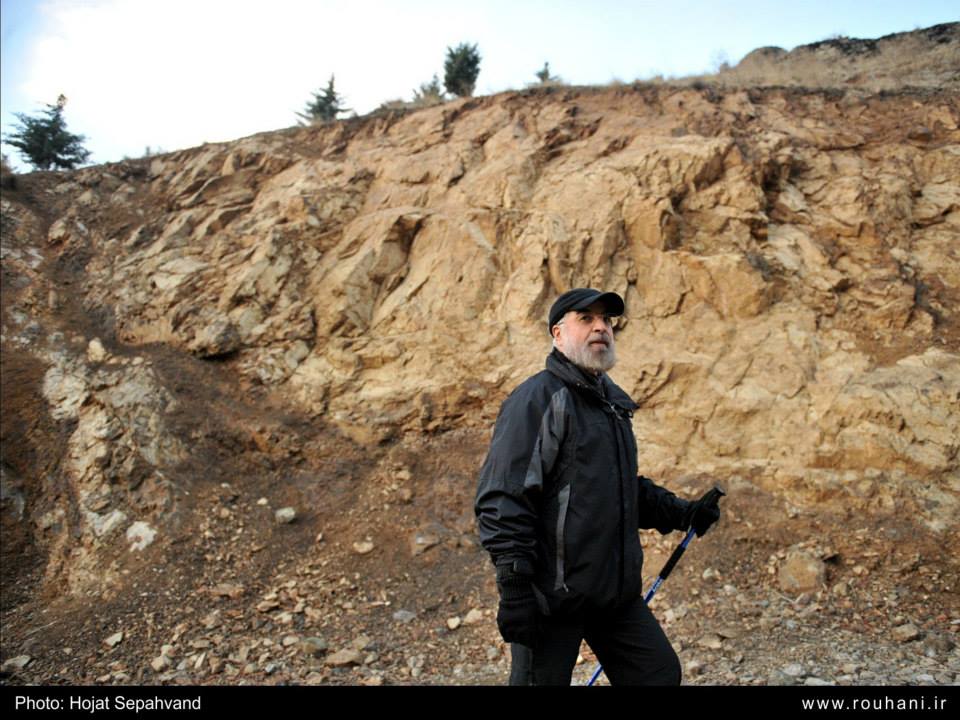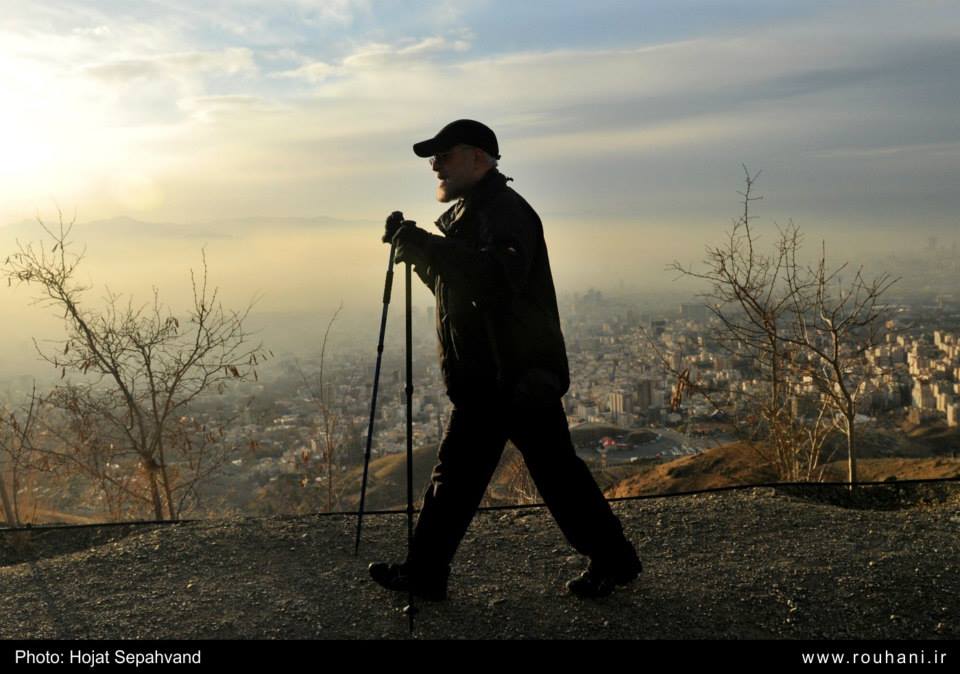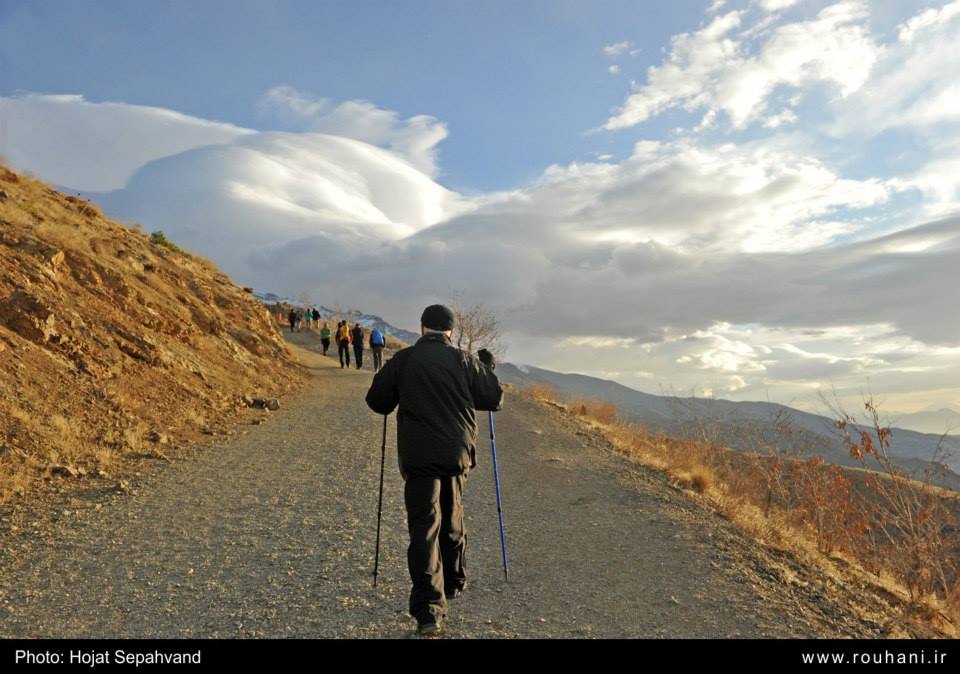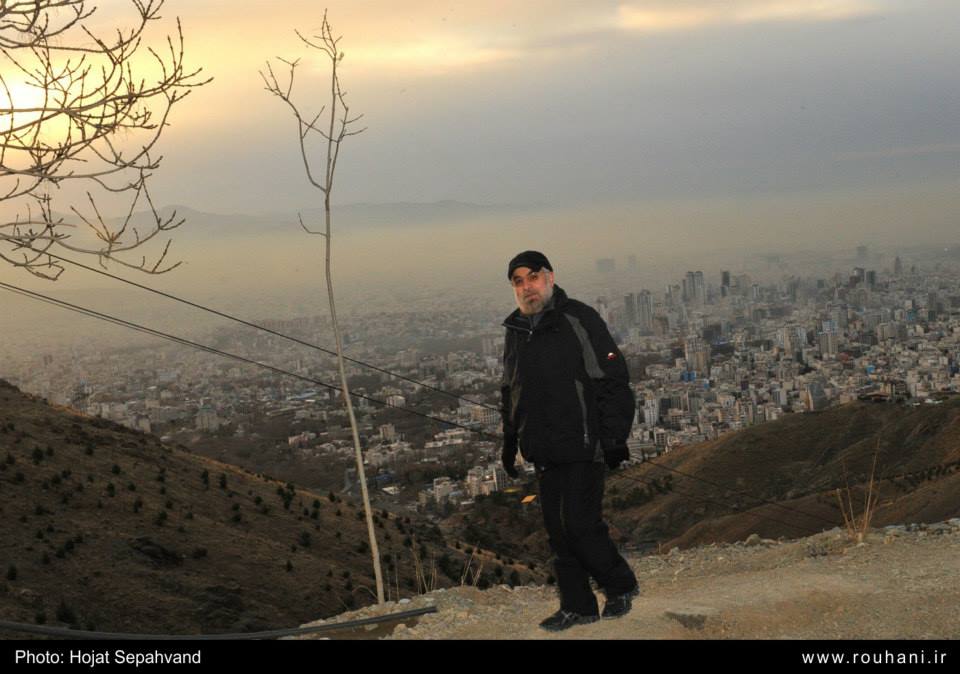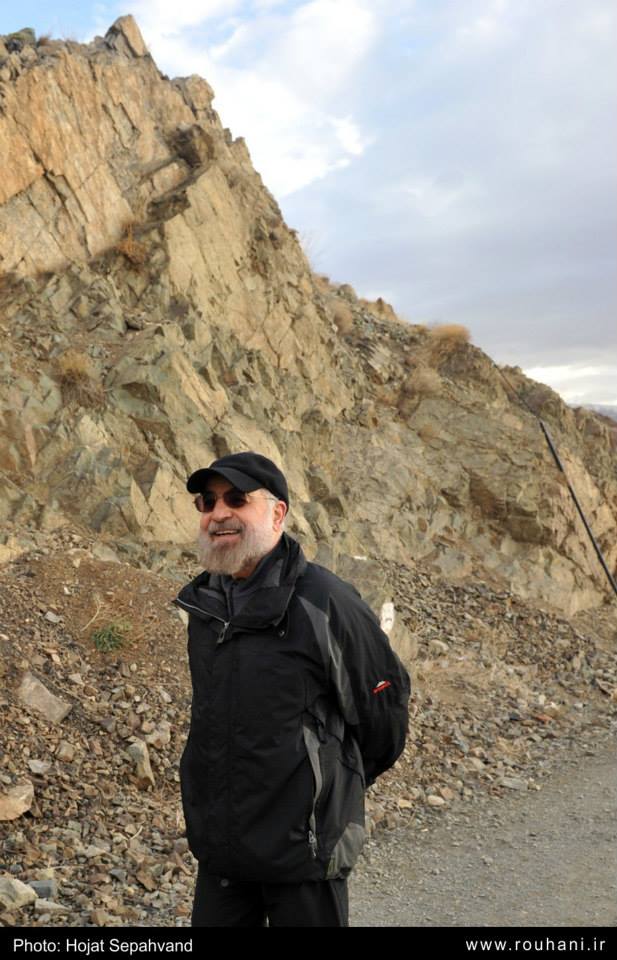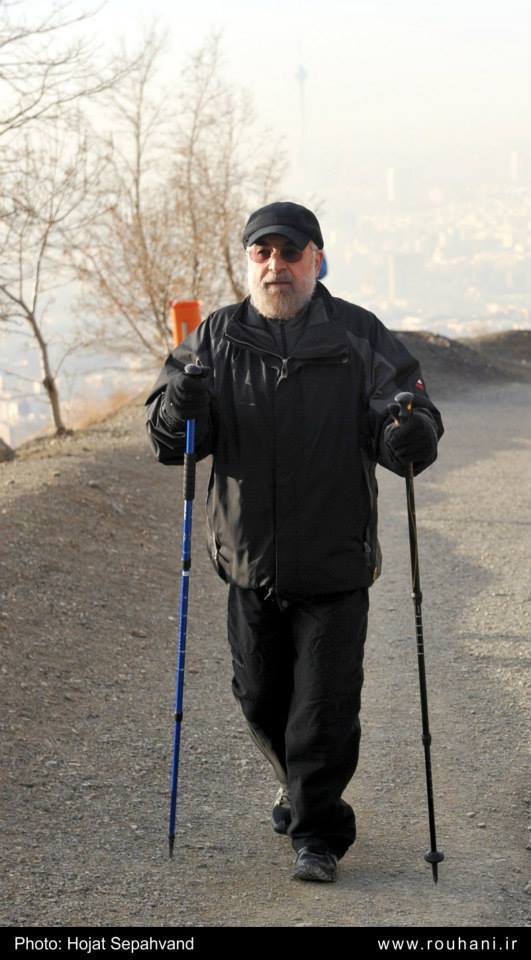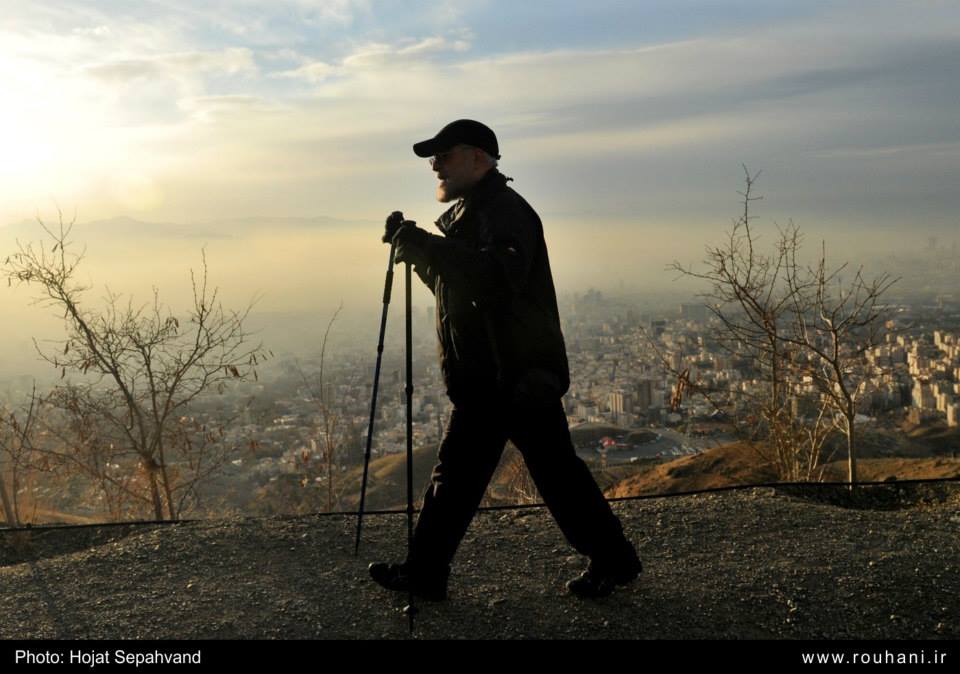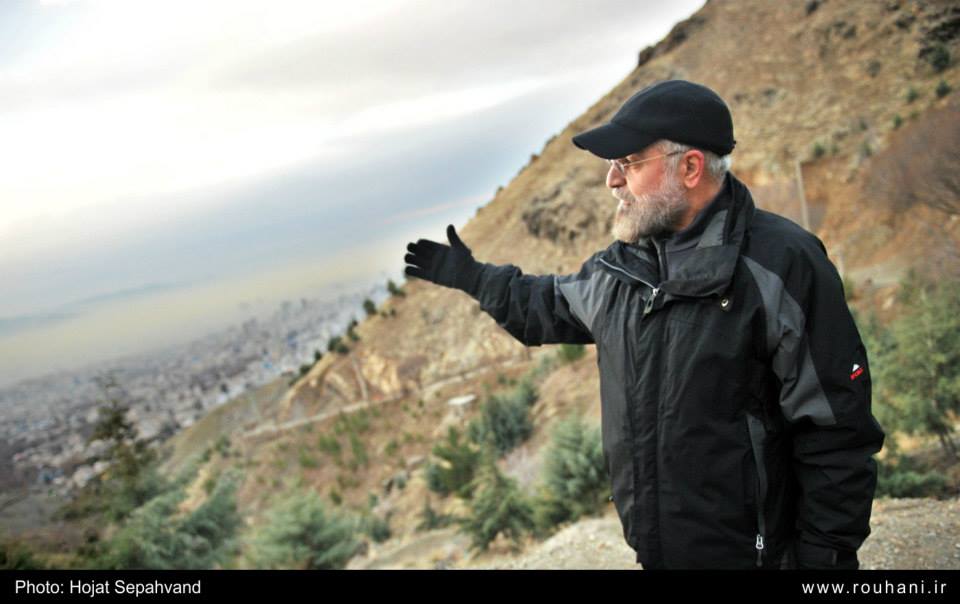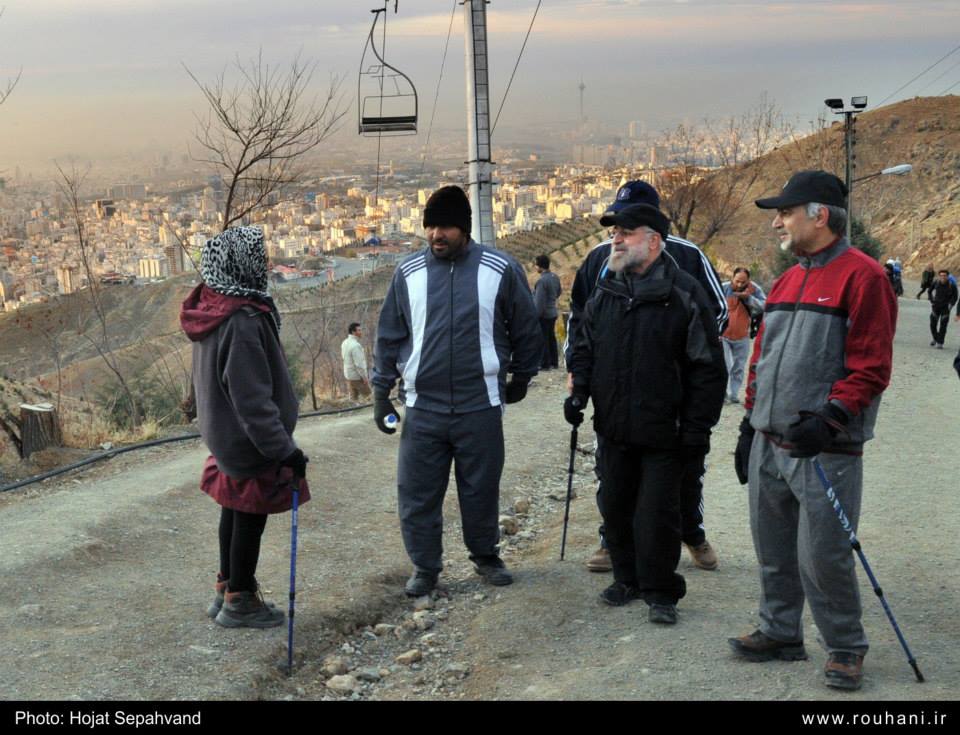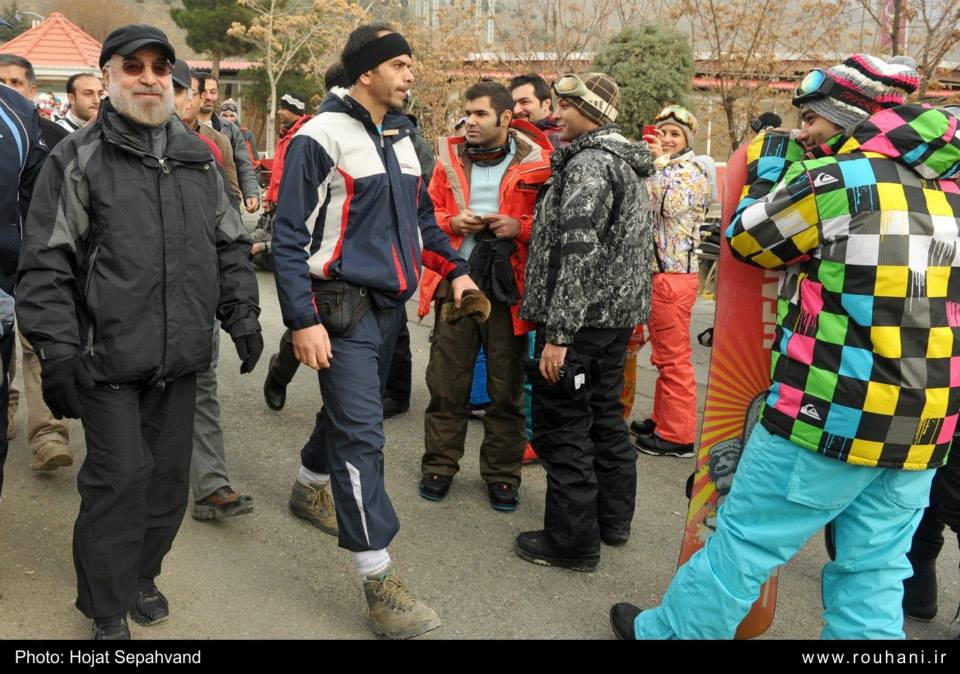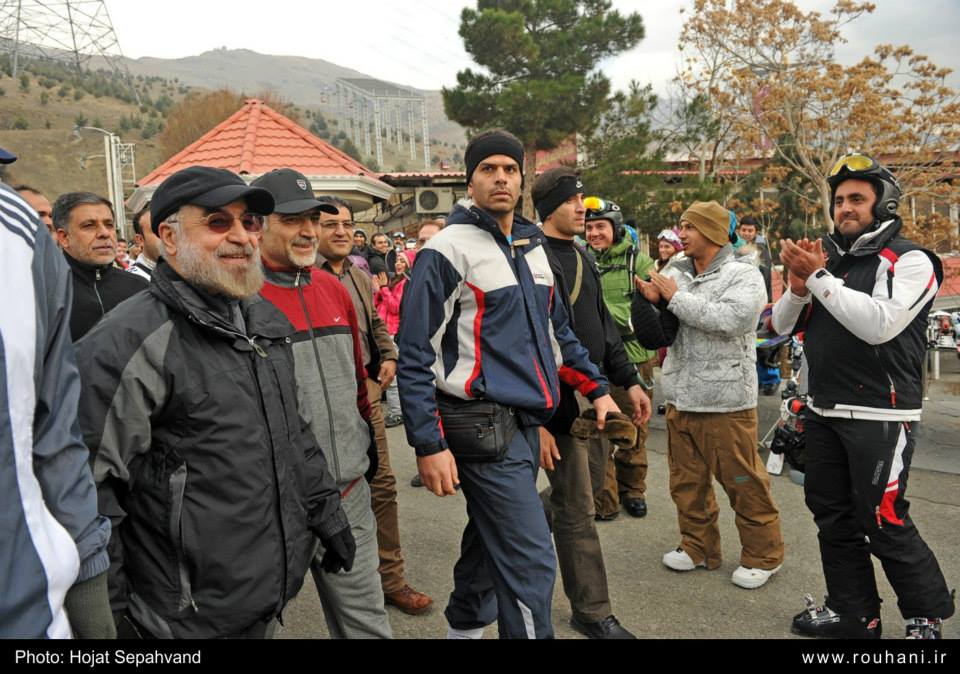The tone of president Hassan Rouhani's measured campaign is changing. Within recent days, he has delivered rare criticisms of Iran's powerful religious and security forces, lashing out against rivals ahead of his reelection bid in less than 10 days.
To a certain extent, Rouhani’s attacks seem to be even harsher than his 2013 election strategy. For example, he even went as far as stating that the Shrine of Imam Reza—currently managed by Ebrahim Raisi—has avoided paying any taxes. Attacks against holy religious entities are typically considered to be off-limits. The reason behind this sudden shift is due to a number of factors:
1. Rouhani and Jahangiri were caught off-guard during the second debate
During the first debate, Jahangiri was responsible for the brunt of the attacks, mainly levied towards Ghalibaf. Rouhani picked up the pace a bit during the second debate by directly challenging Raisi’s experience, especially when it comes to foreign policy and Iran’s nuclear file. However, it was clear that Jahangiri-Rouhani were not prepared to deflect the majority of the Ghalibaf and Raisi's sharp attacks. For example, Rouhnai's education minister and his daughter were accused of corruption by Ghalibaf, but the moderate duo did not have a convincing rebuttal. Their lackluster performance left the moderate and reformist voices disappointed. They have called for a more robust approach by Rouhani.
2. Influential Conservative Forces Are Throwing Their Weight Behind Raisi
Since the second debate a number of major principlist organizations have officially endorsed Raisi as their candidate of choice. These insinuations have the ability of influencing the hearts and minds of the electorate, especially the country’s religious working class. Some of the major institutions that have publicly endorsed Raisi include the Resistance Front of Islamic Iran, an Iranian principlist political faction associated with Mohsen Rezaee, Society of Seminary Teachers of Qom, an influential body currently in charge of promoting or demoting clerical religious ranks, and Combatant Clergy Association, a traditional conservative clerical association.
Additionally, a number of hardline news agencies such as Tasnim, Keyhan, and Fars appear to be inching towards supporting Raisi. Within the past week, they have covered any news related to Raisi's campaign in a more nuanced and comprehensive manner. In order to combat these conservative heavyweights, Rouhani is forced to be much more direct and bold.
3. Furious Protests by Miners Could Indicate Rouhani’s Lack of Popularity within the Working Class
Over the weekend, Rouhani’s convoy faced furious protests by coal miners and their families when he visited the site of an explosion that claimed dozes of lives. Local news agencies broadcasted footage of people that surrounded Rouhani’s car, beating the vehicle and blocking its path. Rouhani’s promise of dealing with the situation did little to calm the crowd.
Just two weeks before the election, such footage could have an impact on public opinion, especially among the country’s blue-collar workers. The visit may have been a shocking revelation for Rouhani who may now believe to be losing popularity within the society's working class. His recent bombastic statements could be an attempt to combat such negative publicity.
It is clear that Rouhani is on full offensive mode and will adopt a no–holds–barred approach prior to the final debate. We should expect a very heated final debate over economic issues.



